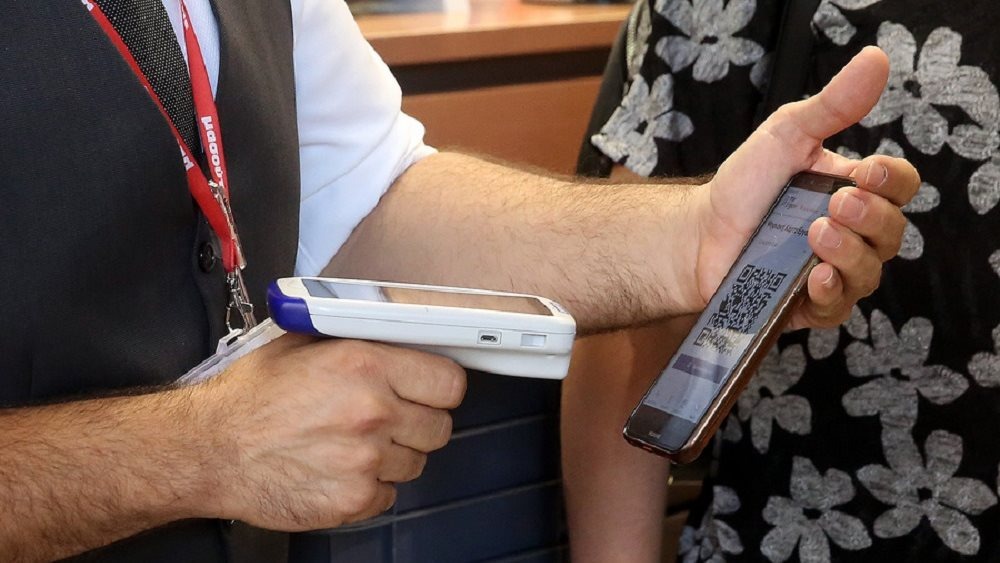
The 350 industries of Greece declare that they are ready for the application of the digital work card to all staff and in all their production units from next Monday, April 1.
This conclusion emerges from the successive meetings of the executive bodies of the SEB and the respective Associations of the Industries of Attica, Thessaly and Northern Greece, where according to information from Capital.gr it was agreed upon the faithful implementation of the new institution which will benefit the employees as well but and businesses as with the digital recording of working time they will not face the unfair competition of reduced labor costs from businesses that resort to the indicated employment.
Industries will support the implementation of the digital card by looking forward to further cooperation and consultation with the government in matters related to the reduction of taxes and energy costs.
One month later, on May 2, the digital card is put into full production operation in retail, while from May 13, the digital card enters small businesses in industry-retail that employ between 1 and 10 workers. In practice, from May 13, small and medium-sized businesses with 2 to 4 employees should have the digital card system not only installed but in full production mode, because with it the hours, overtime, days off, and holidays will be transferred to “Egrani”. and will constitute the evidence for the regular and extraordinary remunerations to which the employees are entitled.
The application of the digital card in industry and retail is also combined with corrective actions on the part of the Ministry of Labor, as there is the possibility of reporting the hours actually worked by employees in cases where, due to duties or specialization, there are deviations from the standard hours spent in the digital card. The actual working time will not take into account, for example, the movement of an employee outside the workplace and his return if his position justifies his presence in other offices or units of the company where he works.
The sectors included in the digital card consecutively from 1/4/2014, from 2/5/2024 and with up to 10 staff from 13/5/2024 are the following:
*Food industry
*Distillery
*Production of tobacco products
*Production of textiles
*Clothing manufacturing
*Industry of leather and leather goods
*Wood industry and manufacture of wood and cork products, except furniture, manufacture of basketry and wickerwork
*Paper and manufacture of paper products
*Prints and playback of pre-recorded media
*Production of chemicals and products
*Production of basic pharmaceutical products and pharmaceutical preparations
*Manufacture of rubber and plastic products
*Production of other non-metallic mineral products
*Production of base metals
*Manufacturing of metal products, with the exception of machinery and equipment
*Manufacturing of computers, electronic and optical products *Manufacturing of electrical equipment
*Manufacturing of machinery and equipment n.e.c.
*Manufacturing motor vehicles, trailers and semi-trailers
*Manufacture of other transport equipment
*Furniture construction
*Other manufacturing activities
*Repair and installation of machinery and equipment
*Retail trade, except trade in motor vehicles and motorcycles
The companies-employers in question by sector are obliged, from 1/4/2024 (industries) from 2/5/2024 (retail) and 13/5/2024 (industries – retail with up to 10 employees) to operate a digital work card system for all their employees with a contract or dependent labor relationship, who are employed with a physical presence at the company’s place of employment, including employees who are employed through borrowing.
Businesses active in energy, petroleum and mining are excluded.
Pilot quarter for focus-tourism
Catering and tourism businesses will also have a digital work card, but in a pilot stage, in the summer.
The measure will be implemented at the beginning of the tourist season, and for a period of two or three months its application will be trial in order to identify any difficulties or gaps in the operation of the digital card.
The two sectors, however, are considered to be highly delinquent, which is why you “popularize” the violations of declared employment, undeclared overtime employment, etc.
With the digital card, it is estimated that these violations will be drastically reduced, as every movement of the employee (arrival, departure) will go directly to Ergani and through it to the Labor Inspection.
From the 1st of April when the digital card will work in real time in the industry, the fines are also “activated”. For each overtime found, the penalty is 800 euros per employee. However, the inspectors’ checks result in fines after the companies have been given the opportunity to explain.
After an amendment made to the original decision, employees – supervisors with gross monthly earnings over 4 times the current minimum wage, i.e. those who are paid over 3,120 euros (780X4=3,120) will not be issued a digital card (excluded). With the original decision, those with salaries six times the basic salary were excluded, that is, those with salaries above 4,680 euros (780X6=4,680) were excluded. According to the high-ranking executives, the original decision excluded from the digital card those whose salaries were eight times higher than the minimum wage, i.e. more than 6,240 euros, while the amendment excludes those with a salary above 4,680 euros.
The system of recording and organizing working time with the digital card is already applied in supermarkets, and in banks, in security companies in public companies OSE ERGOSE, STASY, OSY, OASA, OSETH, OASTH, Attiko Metro, Building Infrastructures S.A. ., Egnatia Odos SA, EYDAP and ELTA, Hellenic Train and the Hellenic Railway Equipment Maintenance Company.

